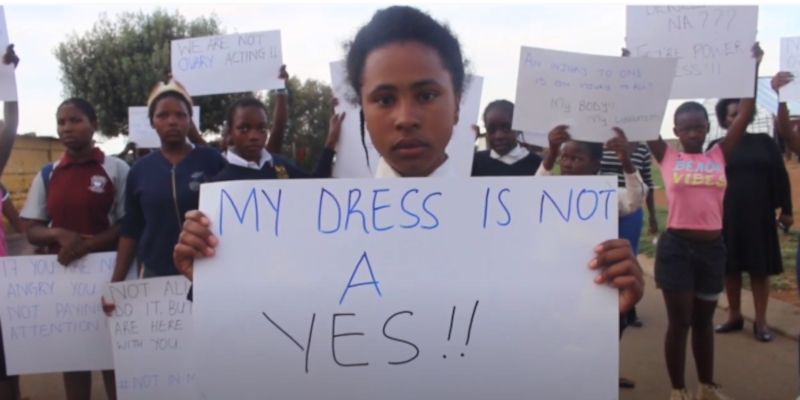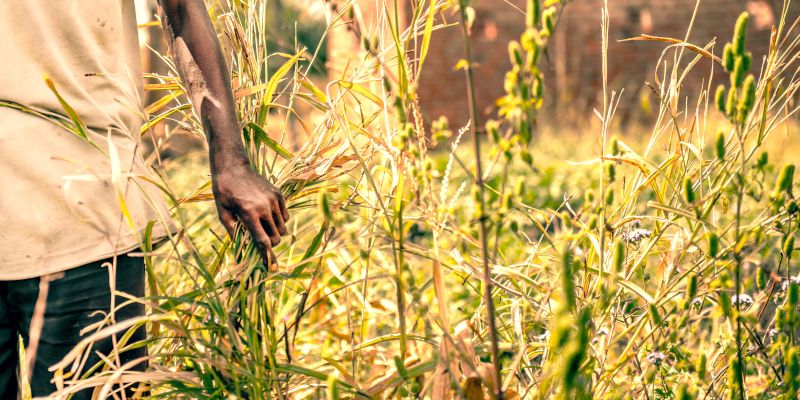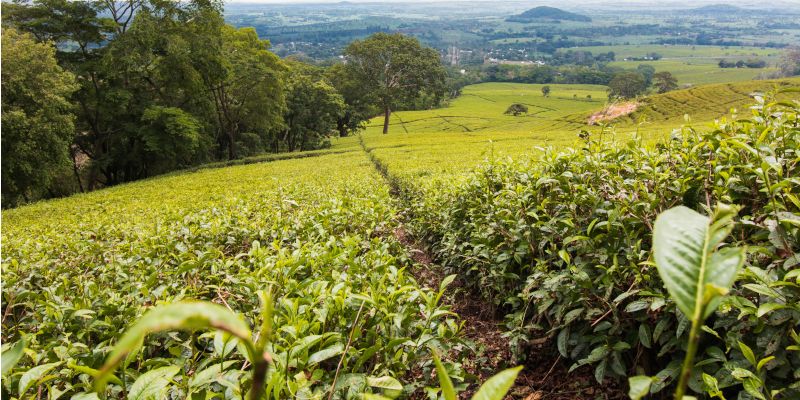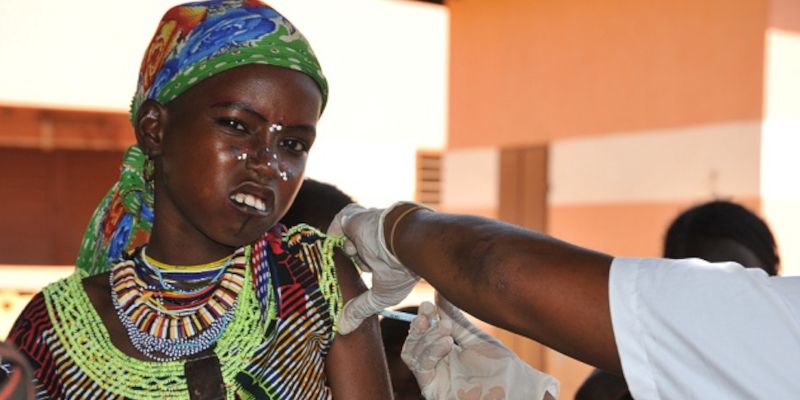
As the world marks Africa Day, the University celebrates its existing partnerships across the continent and looks forward to further collaboration as a key strategic aim for the future.
Africa Day is the annual commemoration of the foundation of the Organisation of African Unity on 25 May 1963. It is celebrated in various countries on the African continent, as well as around the world.
The University benefits from many collaborations with colleagues and organisations in Africa.
Professor Simone Buitendijk, Vice-Chancellor, University of Leeds said: “Our new strategy emphasises the need for universities and nations to collaborate more fully than ever before if we are to reduce inequality and reach the targets set out in the United Nations’ Sustainable Development Goals.
“As a global university, Leeds partners with organisations and institutions across the world, and it is absolutely essential that we continue to broaden our reach if we are to learn, evolve and make a positive difference.
“In addition, we are engaged in partnership research projects that bring change to communities where it is needed, including in the Global South.”
Changing the Story

Changing the Story is a four-year international, multidisciplinary initiative that supports the building of inclusive civil societies with, and for, young people in 12 post-conflict countries, including Rwanda and South Africa.
As a collaborative project between universities, international non-governmental organisations, artists, grassroots civil society organisations and young people across the world, it asks how arts, heritage, and human rights education in particular can support these youth-centred approaches.
“Nobody tends to listen to the kids we work with. By engaging with our programme, they develop the skills that can help them to be heard and to influence events that shape their lives.”
In South Africa, Professor Paul Cooke, Director of the Centre for World Cinemas and Digital Cultures in the School of Languages, Cultures & Societies has been working with youth centres (called Safe Parks) in townships around Johannesburg, using community filmmaking to help vulnerable young people develop leadership skills.
Participants make films about that issues that matter to them, in order to help their voices to be heard by mainstream society so that they can advocate for change.
Many of these children live in homes where there are no adults – a consequence of the HIV-AIDs pandemic and the violence of the apartheid years.
Professor Cooke said: “Our work helps to keep these young people away from gangs that might want to get them involved in drugs, or to stop them becoming the victims of sexual trafficking.
“Nobody tends to listen to the kids we work with. By engaging with our programme, they develop the skills that can help them to be heard and to influence events that shape their lives.”
Looking to the future, case studies from Changing the Story will inform Oxfam’s response to key questions identified in its recent youth engagement project.
You can read more about recent work in this Changing the Story report.
Virtual research scholarships
The Leeds University Centre for African Studies (LUCAS), in collaboration with Leeds Arts and Humanities Research Institute (LAHRI), is running three-month fellowships for academics based at institutions on the African continent to undertake research in collaboration with academics at Leeds.
Each fellowship comes with an award of £1,000, to be used by the applicant for research expenses and/or buy-out from teaching duties at their institution.
Nine scholars from six different African countries will work with academics from across the University on topics ranging from climate change to performance, and medical practices.
“Virtual fellowships are a low-budget and carbon-footprint friendly way of developing collaborative research partnerships between African-based scholars and colleagues at Leeds.”
Professor Adriaan van Klinken, Director of LUCAS, said: “Virtual fellowships are a low-budget and carbon-footprint friendly way of developing collaborative research partnerships between African-based scholars and colleagues at Leeds.
“The theme of the Fellowship scheme – “African Knowledges for Global Challenges” – addresses ongoing debates about decolonisation and contributes to the articulation of African-centred knowledges about the critical questions of our time.”
Connecting Voices
Despite its low contribution to greenhouse gas emissions, Africa is the most vulnerable continent to climate change.
Key climate change research, policy and innovation in Africa was highlighted as part of a series of Connecting Voices for Climate Action events organised by the Priestley International Centre for Climate.
Speakers included Ambassador Seyni Nafo – High Representative of the President of the Republic of Mali for Climate, and spokesperson for the African Climate Negotiators Group.
He said: “Africa is disproportionately impacted by climate change. The continent only emits 3.8-4% of greenhouse gasses, but suffers the most on terms of GDP loss, between 5-9%.”
Africa had huge potential in sectors ranging from energy and industry to agriculture and financial innovation, he said, but research and innovation was the key.
“There’s an opportunity to have a systemic approach and ensure that research and innovation is really translated from science into policy, into action on the ground.”
Among those also presenting at the online event, Research to innovation: Solutions to the climate crisis in Africa, was Barbara Evans, Professor of Public Health Engineering, and chair in Public Health Engineering in Leeds’ School of Civil Engineering, and Sir Nick Kay, former British Ambassador to Afghanistan, Sudan and the Democratic Republic of the Congo.
Food and environment
There is a core focus on these areas in research related to countries in Africa of which the following examples are a small selection.

Protecting soil
The potential for farmers to protect their soils and make smarter, region-specific agricultural management choices is being advanced in Malawi.
Agricultural systems with the potential to capture and store carbon are being investigated by Dr Marcelo Galdos, a Met Office Academic Fellow at the School of Earth and Environment.
African farmers have multiple and sometimes conflicting uses for crop residues, which can be used for cooking, building materials or feeding animals.
Removing the straw reduces the potential for carbon sequestration and exposes the soil to erosion. As such, it is a challenge, especially in the dry season, to nourish the livestock while also protecting the soil.
Dr Galdos helps to identify where soils are most vulnerable to extreme weather events and how to protect them by working with the Lilongwe University of Agriculture and Natural Resources (LUANAR) in Malawi to assess soil health in conventional and conservation systems.
“We apply models that can paint a picture of land cover and its dynamics and estimate how crops could be affected by future climate scenarios.”
Dr Galdos said: “We apply models that can paint a picture of land cover and its dynamics and estimate how crops could be affected by future climate scenarios.
“The results can be used to both reframe how agricultural systems are managed by farmers and to give incentives that encourage more sustainable farming methods.”
The work is part of an AFRICAP project, with fieldwork in Northern Malawi.
Food insecurity and malnutrition
Food Systems Research Network for Africa (FSNet-Africa) is using interdisciplinary research to develop a new understanding of the African food system, tackling food insecurity and malnutrition from the ground up.
Sub-Saharan Africa is the most food-insecure region in the world. Despite challenges of poverty and malnutrition, in many countries, people rely on agriculture not only for food – but also for their livelihoods.
The project is one of four aimed at tackling global challenges of disease, poverty, climate change, and food insecurity.
Led by the University of Pretoria in partnership with the University of Leeds and FANRPAN, the £2 million, three-year programme operates in six sub-Saharan African countries: Ghana, Kenya, Malawi, South Africa, Tanzania and Zambia.
“One in four people in sub-Saharan Africa face food insecurity, and Africa will need to produce 80 per cent more food by 2050.”
Professor Frans Swanepoel of the University of Pretoria is Principal Investigator for FSNet-Africa. He said overcoming Africa’s development challenges cannot be separated from the need to transform the continent’s food systems.
“One in four people in sub-Saharan Africa face food insecurity, and Africa will need to produce 80% more food by 2050.
“The challenge is not only to ensure that adequate food is accessible, but to provide safe and nutritious food as African countries are confronted by the triple burden of malnutrition.”
Nutrition programmes
Working with partners in Africa, Leeds researchers are helping African scientists working in the agriculture and food production sectors.
Professor Caroline Orfila, Chair in Plant Biochemistry and Nutrition and Associate Director of the Global Food and Environment Institute, with colleagues Dr Hannah Ensaff from the School of Food Science and Nutrition and Dr Effie Papargyropoulou from the School of Earth and Environment, have devised the programme.
“It is really important that nutrition is put back on the research and policy agendas.”
Professor Orfila said: “For so long in the region the emphasis has been on producing sufficient food for everyone, hence the mass production of calorie-dense cereals, oils and seeds. It is really important that nutrition is put back on the research and policy agendas.
"For this purpose, people involved in the food system need to understand the nutritional impact of agricultural and food system interventions.”
The researchers have worked in close collaboration with Professor Hettie Schönfeldt of the University of Pretoria, who is Director of the African Research Universities Alliance (ARUA) Centre of Excellence for Food Security.
Professor Schönfeldt advises the South African National Department of Health and is recognised internationally for research excellence in African food systems.
Also working closely with the course leaders is Bertha Munthali of FANRPAN, who is a nutrition advisor and has conducted nutrition interventions in sub-Saharan Africa, including the Agriculture to Nutrition (ATONU) initiative in Ethiopia and Tanzania.
The training programme comprises activities that will equip scientists with the necessary skills to critically appraise, design, implement and evaluate nutrition-sensitive programmes in Africa.
You can read more in this Medium article.
Food needs

AFRICAP – Agricultural and Food System Resilience: Increasing Capacity and Advising Policy – is a four-year GCRF investment to tackle the growing gap between food needs across Africa and agricultural productivity.
Food shortages have been made worse by changing climate patterns which have resulted in droughts, extreme floods, and pest infestations.
AFRICAP involves collaborations with universities, policy and research institutes, and governments across the continent.
“Our achievements have relied heavily on relationships of mutual trust and respect, established through Africa-UK partnerships that Leeds has invested in since 2008.”
Tim Benton, Professor of Population Ecology at Leeds’s School of Biology and principal investigator in the project, said: “AFRICAP has co-developed interdisciplinary research spanning across agriculture and food systems, producing a comprehensive evidence base to help African countries reduce poverty and hunger whilst addressing the broader aims of the UN’s Sustainable Development Goals.
“Our achievements have relied heavily on relationships of mutual trust and respect, established through Africa-UK partnerships that Leeds has invested in since 2008.”
Cheney Fellowships
World-leading researchers from across the globe have been exploring new ideas and building new collaborations as part of a fellowships programme established through a gift from alumnus Peter Cheney and his wife Susan.

Cheney Fellowship recipients include Dr Irene Agyepong, a former regional director of health services in Ghana, whose work with Professor Tolib Mirzoev, from the School of Medicine’s Nuffield Centre for International Health and Development, led to four successful grant application for four scheme.
These included examining why Ghanaian government medicine pricing policies had failed to have the intended impact of reducing costs and improving access to medicines for the most disadvantaged people in the country.
Other projects focused on helping health systems in Ghana and Vietnam to become more responsive to the needs of their most vulnerable populations, such as pregnant women with mental health disorders, and examining the health needs of the urban poor Ghana, Nigeria, Nepal and Bangladesh.
A further project looked at priorities for adolescent mental health services in West Africa, and whether services currently available meet those needs.
Professor Kelly Chibale’s Cheney Fellowship sparked collaborations between groups in Leeds and South Africa’s Cape Town, focused on developing new drugs for tuberculosis and malaria.
Founder and director of Africa’s first integrated drug discovery centre, Professor Chibale worked with Professor Colin Fishwick from Leeds’ School of Chemistry, and the Astbury Centre for Structural Molecular Biology.
They looked at designing and creating small molecule drugs for tuberculosis, to be screened and tested in Cape Town.
Another focus was malaria, designing or identifying molecules that could block specific actions or mechanisms, and so have the potential to become an effective treatment.
Health research

Image credit: WHO/R Barry
Meningitis outbreaks
Scientists are using weather forecasts to predict the location and scale of impending meningitis outbreaks in sub-Saharan Africa.
It is part of an early-warning system being piloted with the aim of giving health agencies more time to activate emergency response plans.
The approach – pioneered by the African Centre of Meteorological Applications for Development and African SWIFT initiative is using weather data to give up to two weeks’ advanced warning of conditions “less likely” or “highly likely” to trigger a meningitis outbreak.
The forecasts also warn if an outbreak is likely to become an epidemic.
Incidence of the disease rises dramatically in hot, dry and dusty weather. There are about 30,000 cases in Africa each year: one in ten infected people die and others can be left with brain damage, epilepsy and deafness. Once an outbreak starts, it spreads rapidly from person to person.
Professor Doug Parker, Professor of Meteorology at Leeds’ School of Earth Environment and lead scientist at African SWIFT, said: “Researchers have known about the link between weather conditions and meningitis for decades.
“But with advances in weather modelling, we can now forecast with a high degree of accuracy one or two weeks ahead whether those conditions will develop, and that is giving health agencies a window in which to try and target their resources to the right place.”
Childhood deafness
An interdisciplinary research partnership is investigating early education for young deaf children and their caregivers in Ghana.
The two-year project builds understandings of the social-cultural and resource dynamics surrounding the developmental precarities of childhood deafness in the Global South to support early education programming.
The project is led by Professor Ruth Swanwick, from Leeds’ School of Education, in collaboration with Dr Alexander Oppong and Dr Yaw Offei, from the University of Education in Winneba, Ghana.
Deafness affects 32 million children worldwide and is disproportionately prevalent in low and middle income countries where the physical, economic, cultural, and social contexts of children’s lives inhibit access to inclusive and equitable early education.
The project involves collaborations with education and hearing health scholars, and work with caregivers, families and communities in Ghana.
Clean energy technologies
A new television drama is combining action-packed entertainment with creating awareness about clean energy technologies.
The project is the result of a project partnership between Leeds and the Centre for Research in Energy and Energy Conservation (CREEC), based at Makerere University in Uganda.

Professor Jon Lovett, from the School of Geography, leads the project at Leeds.
He said: “There are many excellent engineers and scientists in Africa. The capacity building initiative is enhancing their skills and ability to play a leading role in the clean energy transformation currently taking place globally.”
The International Energy Agency estimates that about 600 million people in Africa do not have access to electricity, with 900 million people lacking access to clean cooking.
Indoor air pollution from cooking smoke is called the "killer in the kitchen" and the World Health Organisation estimates it leads to around 1.6 million deaths a year globally.
Small-scale electricity generation can be achieved using solar power and biomass gasifiers. However, the transformative potential of these technologies is not widely appreciated.
“We want to see more people using clean energy in the country and in the region”
Mary Suzan Abbo, CREEC's director, said the film would encourage wider dialogue and knowledge about renewable energy. “We want to see more people using clean energy in the country and in the region,” she added.
Extreme weather
African SWIFT was set up to improve the accuracy of weather forecasting for people’s safety, and for key economic sectors including aviation, agriculture, energy, water and emergency response.
SWIFT (Science for Weather Information and Forecasting Techniques) is led by the National Centre for Atmospheric Science (NCAS). Programme partners include universities and national meteorological services in Ghana, Kenya, Niger, Nigeria, Senegal and the UK.
Every year, high-intensity weather events result in devastating loss of life and damage to land and infrastructure – and they are set to increase because of climate change.
Doug Parker, Professor of Meteorology at the School of Earth and Environment, and Lead Scientist with African SWIFT, said: “By improving weather forecasting, the project has had an impact on the lives of millions of ordinary people who, armed with accurate weather information, can take steps to protect themselves, their families and livestock from the effects of severe weather.
“But the biggest legacy of African SWIFT is the way it has fostered a network of operational forecasters and meteorological scientists across Africa who will continue to adapt and improve forecasting techniques in the light of the latest research long after African SWIFT has finished.”